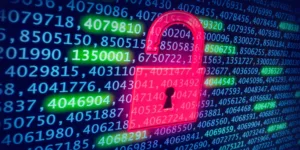There’s a new generation of adults who have never experienced life without the internet as we know it. Whether their parents granted them access to a phone with internet capabilities, a laptop at home, or maybe even smart home functionality or not doesn’t take away from the fact that it was still available. Generation Z, or whatever kids these days are called, has had an unprecedented exposure to technology.
With that exposure comes a habitual desensitization to what is a real danger of the internet. Cybersecurity is greatly under respected by younger generations because of this. Besides, who cares if your buddy has your Netflix password that just so happens to be the password to three of your other accounts including your email?
The assumption, often made in kind with the label ‘millennial’, is that they know everything about technology and are on the cutting edge of technology and deeply knowledgeable of the next big thing. What most people don’t seem to remember is that the millennial generation has members well into their 30s at this point with all the memories of slow dial up 56k modems and concerned parental warnings about the internet as a new and uncharted tool.
After all, you never know who is on the other end of the computer – a practice proven by the increase of hacking attempts – both successful and thwarted. Facebook, Experian, and Yahoo are just some of the household name companies who have added their names to an ever-growing list of organisations who have experienced data breaches. The sheer amount of breaches suffered on a world wide basis is at an unprecedented amount at this point and we can realize from this that cybersecurity is obviously under respected by internet users.
It’s not just computers either, recently, over 3,700 3D printers were left exposed without ample cybersecurity. The printers, which hook up to the internet, become accessible to malicious manipulation. What takes this a step further is that the printers would be remotely accessible to those people enabling them to purposely overheat printers in order to burn down structures, Steal R&D data as well as conduct espionage accessing printers built-in cameras. With 3D printers growing in popularity within America this is an issue not to be taken lightly.
With all these security risks you would you may be asking what simple steps you can take to protect yourself whilst online, to ensure your security whilst online make sure to:
- Install Antivirus software on your computer
- Use different passwords for each login making sure not to share them
- Use Two-Factor Authentication wherever possible
- Use different emails for different types of accounts
- Turn off the ‘save password’ feature in your browser
It’s unquestionable that we live in a golden age for data sharing however with this comes the risk of data breaches and a need to be ever vigilant when it comes to online security. Hopefully with an increased awareness of cyber crime and an understanding of online security risks and steps to take to counter them, this will wake a generation up from sleepwalking into cyber crime victimhood.








